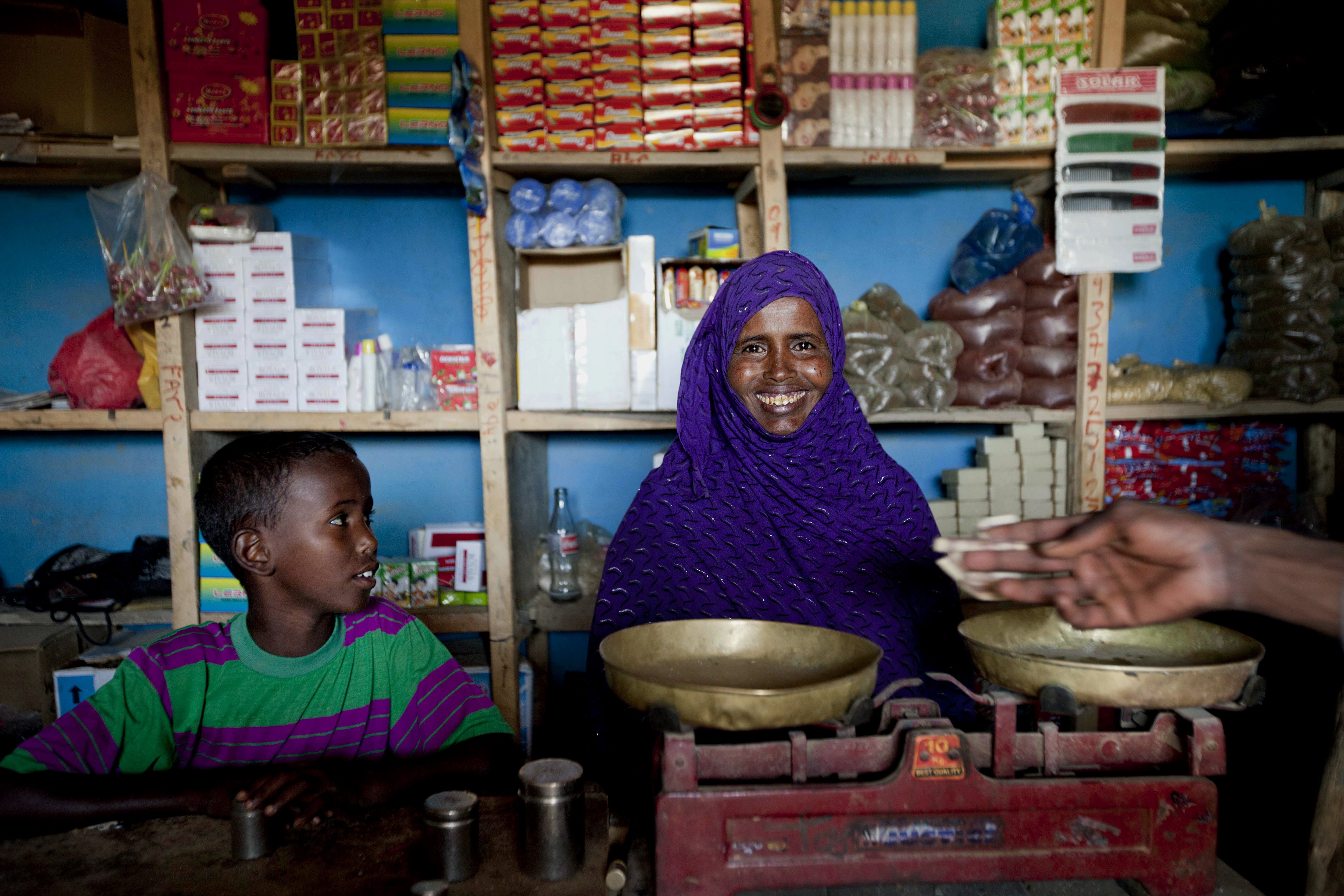Resource flows between migrants, their families and wider communities include money (remittances, diaspora investment), trade (goods, services) and knowledge (technology, skills, business capabilities).
These flows directly impact income and wealth inequalities, consumption and investment behaviour, and the potential for employment and economic growth, in both origin and destination countries.
Whilst research and policy attention on remittances has grown significantly, there has not been enough focus on migrants as owners, managers and financiers of business enterprises in either origin or destination countries. There has also been limited analysis of the significance of migration for knowledge flows between destination and origin countries, especially when both countries are in the Global South.
Our research examines:
- Resource flows between countries of destination and origin including the composition, size, transmission mechanisms and interactions amongst flows.
- Enterprises linked to migrants, diasporas and returnees, as owners, managers, financiers or promoters, in countries of destination and of origin.
- The mechanisms and impact of business, professional and technical knowledge and skills flows between destination and origin countries on enterprise growth and on wider processes of economic and social development in both countries.
Research Context
This WP has two connected focuses. The first focus is on actual flows of resources – useful or valuable assets which enable economic activity, such as production or consumption, or social and political activity – between countries of origin (CoOs) and countries of destination (CoDs). The three types of resources of primary interest are: (i) finance (remittances and diaspora investment); (ii) goods and services traded, and (iii) knowledge, including skills, capabilities, networks or information. In the WP, we will consider flows in both directions between CoO and CoD.
The second focus is on the actors which are senders or recipients of resource flows, including migrant-linked households, businesses and collective organisations, as well as public and private organisations enabling, managing or regulating these flows, such as government agencies or private financial institutions. The WP’s main (but not exclusive) focus will be on those private businesses and collective organisations, which have migrants/diaspora members as owners, managers or financiers.
Each of the three corridors where WP6 is working – BF-CI, CN-GH, and ET-SA – will reflect a particular configuration of resource flows and of actors undertaking resource flows. A general concern in this WP is whether resource flows in ‘South-South’ migration corridors have characteristics common to each other, but different from South-North and from North-North corridors: are specific concepts and theories needed to understand South-South migration, and its effects on inequality and development in CoOs and CoDs?
Research Questions
- What are the characteristics of the resource flows between CoD and CoO – composition, size, transmission channels and interactions amongst flows?
- What are the characteristics of migrant-linked businesses (linked by ownership, management or finance) in CoDs?
- What are the characteristics of diaspora- and returnee-linked businesses (linked by ownership, management or finance) in CoO?
- What has been the impact of CoO migrants’ professional and technical skills brought from CoO to CoD, or taken back from CoD to CoO via diaspora channels or return migration?
